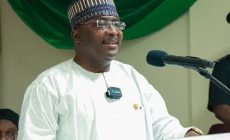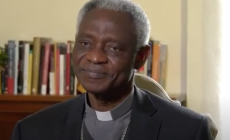The bill, titled a ‘Comprehensive Solution-Based Legislative Framework for Dealing with the Lesbianism Gay, Bisexual, and Transgender (LGBT) Phenomenon’, would be presented to Parliament by the end of September in 2018.
“We as a coalition have come together to research, and we assure Ghanaians that there would be a roadmap to ensure that the time for talking is over and must stop. We are preparing a legislative draft, for a stakeholders’ conference in September that will be put before Parliament for it to be passed into law.
The bill would effectively provide solutions on how to best to help homosexuals and at the same time prosecute them.
Speaking in an interview with the Ghana News Agency (GNA) in Accra, Mr Amoaning said the bill, unlike the LGBT, would be based on knowledge, scientific and empirical research, and not just talks.
“The bill will be a researched Afrocentric response to Western European and LGBT groups who were pushing this act onto African countries,” he said.
According to the bill, homosexuals would be grouped into two categories, and the response to be taken in regard to curbing homosexual behaviours would depend on which category such individuals fell within.
“Some become homosexual because of peer pressure, economic reasons, then the medically affected ones like hormonal imbalance, such people need help, so we would provide such help for them through the Ghana Health Service, by setting up a comprehensive unit that has a psychiatric, psychologist, medical personnel, surgical team, guidance and counsellors, then Gospel Ministers to help them.
“But for those who think it is a lifestyle and they want others to get involved, the law will deal with them because we will clearly define what homosexuality is, what LGBT entails; and if they are caught, they will be prosecuted,” Mr Amoaning said.
Mr Amoaning, who is also a lecturer at the Ghana Law School, said the bill would be given the help needed to reform homosexuality but if they don’t, “we will take them through the processes and be convicted, but even in prison, we will provide guidance and counselling for them”.
He said the coalition, formed in December 18, 2013, would start the build-up to the release of the bill with a prayer vigil on homosexuality in June, then move on to all regions for its regional homosexuality interventions campaign, before finishing in September with a stakeholders’ conference.
The coalition is made up of all three major religious bodies in Ghana, represented by the Christian Council of Ghana, the Ghana Muslim Council, and Ahmadiyya community, and the traditional rulers.
Coalition to soon present bill to criminalise homosexuality
- Posted on
- Comment
 Mr Moses Foh Amoaning, the spokesperson for the National Coalition for Proper Human Sexual Rights and Family Values, says his outfit would soon present a draft bill to Parliament to criminalise homosexuality.
Mr Moses Foh Amoaning, the spokesperson for the National Coalition for Proper Human Sexual Rights and Family Values, says his outfit would soon present a draft bill to Parliament to criminalise homosexuality.










 (Selorm) |
(Selorm) |  (Nana Kwesi)
(Nana Kwesi)